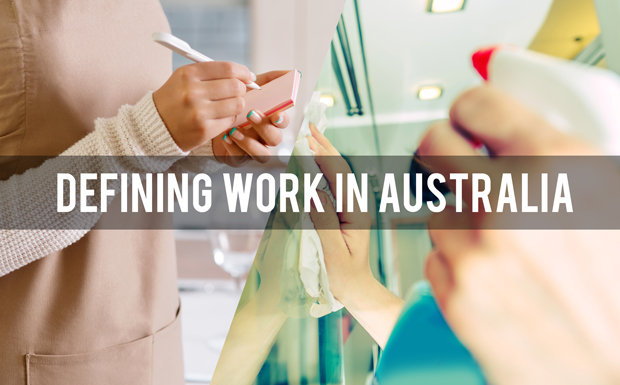Defining work in Australia: What you need to know about working here
DO you know if you’re being treated fairly at work and whether your employer is taking advantage of you? Samantha Chew gives you the low-down on what you need to know about working in Australia.
International students are continuously being taken advantage of, through underpayment, unfair treatment and illegal practices.
These are stories that we hear time and time again: earlier in the year, both 7-Eleven and popular Malaysian restaurant Papparich were called out for illegal practices including the exploitation of international students. Last year, the Herald Sun reported on international students working at a sushi franchise store, claiming students were denied pay and instead given sushi rolls they had made themselves.
So how do you know if you’re being paid fairly and if your employer is treating you right? What laws are there to protect workers like yourself and what can you do if you’re being taken advantage of at work?
We chat with Gabrielle Marchetti, Principal Lawyer at JobWatch, a Victorian community legal centre that specialises in work rights, to help you understand key terms and concepts when it comes to this issue:
What is work exploitation?
When your employer breaks the law by not paying you properly and not following Australia’s work laws, that’s work exploitation. This can include:
- Not being given or allowed to go on your lunch break
- Being forced to be paid cash-in-hand (i.e you’re not officially on the employer’s books)
- Going against your visa conditions
- Being made to work in unsafe conditions
- Not being given paid sick or annual leave
What is the minimum wage?
The minimum wage is the lowest amount that an employer is allowed to pay you under Australian law. It is determined by two things: your employment status and your industry’s Award or Enterprise Agreement.
Part-time employees work less than 38 hours per week, are set regular hours each week, entitled to similar benefits as a full-time employee and is a permanent employee or someone on a fixed-term contract.
If you don’t get any sick or annual leave and your hours vary from week to week, you are considered a casual employee.
The Award and Enterprise Agreement are documents which contain all your minimum conditions of employment. The Award sets out the rights you have as an employee. The Enterprise Agreement sets out conditions for your employers.
In Victoria, if you’re below 21 years old, your minimum pay is usually determined by your age. For example:
- 20 year olds: Part-time employees – $17.29 | Casual employees – $21.62
- 19 year olds: Part-time employees – $14.62 | Casual employees – $18.25
- 18 year olds: Part-time employees – $12.09 | Casual employees – $15.11
If you’re aged 21 years and older, you should be paid at least $17.70 per hour as a part-time employee and $22.13 as a casual employee.
You may also be entitled to extra pay if you work on a weekend, at night, on a public holiday or for more than a certain number of hours in one shift.
Do note that the above is only applicable to Victoria. If you are from another state, you might be entitled to a different minimum wage rate.
To find out what is the lowest amount that employers can legally pay you per hour for your job, you can call the Fair Work Infoline on 13 13 94 or you can do an online search here: https://calculate.fairwork.gov.au/findyouraward
What/who is the Fair Work Ombudsman (FWO)?
The Fair Work Ombudsman is an independent body that exists to make sure that everyone obeys the Fair Work Act and other laws which apply to Australian workplaces. This includes making sure that you are being treated fairly at work.
If you think you are being exploited at work or paid below your minimum wage…
In the case that you feel that an employer is taking advantage of you, you can:
- Call FWO on 13 13 94 or
- If you live in Victoria, make an appointment for free and confidential legal advice from the International Students Work Rights Legal Service by emailing info@studymelbourne.vic.gov.au
If you’re worried that speaking to the FWO or the International Students Work Rights Legal Service about your work problems will affect your student visa – don’t be.
The FWO is an independent agency funded by the Australian Government but they do not generally share your information or hours worked with any government departments.
The International Students Work Rights Legal Service is not run by the government and the service is completely confidential.
This means that any information you provide to the FWO or the International Students Work Rights Legal Service will not be passed on, and is used only to help make sure you are being paid correctly and not treated in a way that is against the law.
For more information on your rights as a working international student, visit the Fair Work Ombudsman website.

